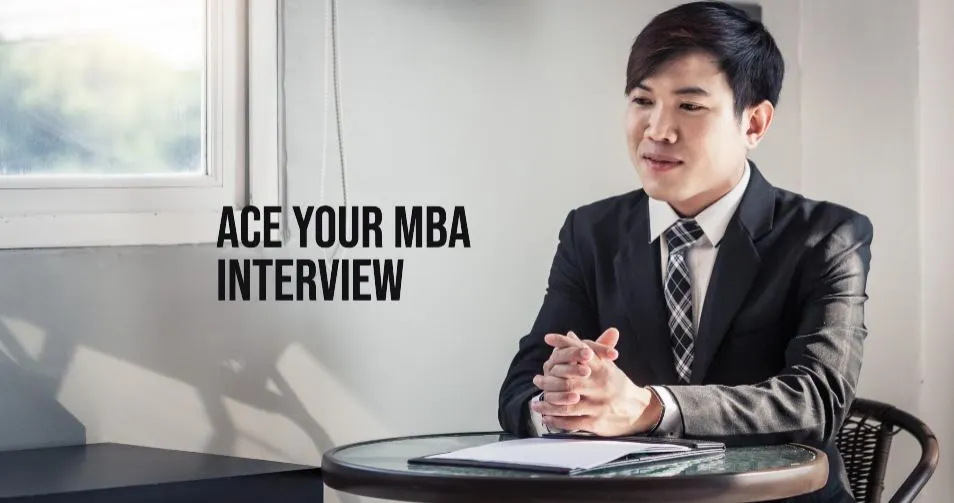Are you taking risks with your MBA dreams? With acceptance rates under 20% at top business schools these days, too much are at stake to wing your admissions interview. It can make or break even the strongest applicants. So why risk careless mistakes that could slam the doors shut? These days, admission to prestigious MBA programs is quite competitive. Therefore, if you want to get selected, you need to make an impression. To do that, a perfect interview is essential.
The interview allows the admissions committee to truly get to know you as a candidate. It brings your MBA application materials to life. It shows first-hand how you think, communicate, make arguments, and conduct yourself. Messing up here can drastically reduce your chances, no matter how stellar your test scores, essays, and recommendations might be.
That’s why it’s so important to avoid common mistakes candidates often make. This blog outlines the biggest 10 mistakes. By learning what not to do in your interview, you can nail it. That will get you one big step closer to securing your admission to your dream school.
Mistake 1: Failure to Research the School
Thoroughly researching the school before your MBA interview demonstrates sincere interest and allows for thoughtful, engaged discussion. Investigate details like the curriculum, faculty, campus culture, alumni initiatives, and core values. This enables you to ask informed questions that highlight your fit within the program, rather than just generic queries any applicant could raise. Convey your understanding of how the school’s offerings align with your goals. The lack of specific research suggests you haven’t deeply considered how this program is the right one for you.
Mistake 2: Appearing Unprofessional in Attire or Attitude
Although MBA programs have casual day-to-day environments, interview attire, and conduct should remain polished and professional. Men should wear formal business suits and women the equivalent in business formal attire. Avoid overly casual accessories like backpacks. Display quiet confidence without arrogance in your demeanor. Remain polite, engaged, and enthusiastic throughout the interview. Even if the interviewer is casual, keep your responses thoughtful and avoid inappropriate humor. Your presentation should convey your capability to contribute professionally within a dynamic MBA cohort.
Mistake 3: Lack of Career Clarity
Candidates who have specific post-MBA professional goals that complement the programs offered by the institution are preferred by admissions committees. Uncertain or vague aspirations for the future indicate an impulsive or ill-informed decision to seek an MBA. Consider carefully the short- and long-term professional goals you have in mind. Make sure these goals logically fit with your prior experiences, skills, interests, and values. Also ensure you can clearly articulate how the school’s curriculum, network, resources, and opportunities can help you achieve these professional aims. Show that you have done your research and understand how the program is the right fit for your career trajectory.
Mistake 4: Failure to Make Eye Contact
Diverting your eyes, gazing at the floor, or letting your attention wander about the room during an admissions interview can frequently be signs of discomfort, dishonesty, or a general lack of confidence. Try to stare your interviewers in the eye 60-70% of the time. This will demonstrate engagement, confidence, and strong communication skills. Occasionally glancing down at your resume or notebook to reference key points or achievements is perfectly fine. But try to avoid letting your gaze stare off into the distance or remain fixed on the floor for long stretches. Brief breaks in eye contact are expected, but interviewers may perceive excessive avoidance as disinterest or evasiveness.
Mistake 5: Not Having Good Questions to Ask
Asking smart, thoughtful questions that showcase genuine interest and enthusiasm for the program makes a strong impression. Avoid relying solely on generic questions easily found online. Spend some time in advance formulating 2-5 original questions based on your investigation of the curriculum, student body, campus life, etc. at the school. Make a note of these so you can remember to bring them up in the real interview. Well-thought-out, program-specific questions show your interview preparations how much work you’ve done to determine whether the program and school would fulfill your interests and aspirations.
Mistake 6: Rambling Answers
Providing concise, clearly structured responses helps showcase your communication skills and thought process. Avoid long, winding answers that ramble on or lose focus. If you can convey the key points and relevant details of your answer clearly and effectively within 2-3 sentences, it is fine to then pause and invite follow-up questions from your interviewers rather than continuing to ramble on. The occasional clarifying question also demonstrates engagement and interest in having a meaningful dialogue with your interviewers.
Mistake 7: Lack of Enthusiasm
A lack of enthusiasm or zeal throughout the interview conveys that you aren’t genuinely excited about the program or institution. Warm smiles, interesting hand gestures, different speech tones, maintaining eye contact, and a genuine interest in what the interviewer is saying can all add life to the conversation. Ask thoughtful questions that convey your enthusiasm to learn more and see how the school aligns with your academic and career aspirations. Let your curiosity and passion shine through.
Mistake 8: Failure to Highlight Accomplishments
While avoiding blatant bragging, don’t be too modest either. MBA interviews allow you to appropriately showcase your key achievements and accomplishments. Tactfully share 1-2 meaningful achievements that highlight your leadership, collaboration, professional growth, and business impact. Quantify your specific contributions through metrics like revenue generated, cost savings achieved, number of people managed, process improvements implemented, etc. This substantiates your accomplishments rather than coming across as boastful.
Mistake 9: Not Asking About Fit
With top MBA graduates often having multiple admission offers, admissions committees want reassurance you’ll attend their school if accepted. Ask thoughtful, specific questions that assess the academic, social, geographic, and cultural fit between you as an applicant and the particular business school’s program, based on your career goals, preferences, background, interests, etc. This shows you’ve researched the program and are evaluating fit beyond rankings. Demonstrate your interest in attending by asking how you can contribute to the school community.
Mistake 10: Being Unprepared for Behavioral Questions
Behavioral questions require drawing from your own experiences, so failing to prepare relevant anecdotes ahead of time will hinder your ability to provide compelling examples. When answering, share specific stories over theoretical responses. Reflect beforehand on impactful projects, challenges overcome, and times you exhibited key skills. Identify at least 2-3 detailed, meaningful examples that align with the qualities needed for the role. Practice summarizing these anecdotes confidently and concisely. Thoughtful interview preparation will empower you to leverage behavioral questions as opportunities to illustrate your unique background, profile development, and capabilities.
Conclusion: Resources to Master the MBA Interview
Avoiding common MBA/EMBA Application mistakes requires diligent preparation across multiple areas – from thoroughly researching your target schools to refining your answers to anticipated questions. Additionally, consider the guidance of an MBA admissions consultant with specific expertise in supporting international applicants. Their experience preparing candidates from abroad can prove invaluable. MBA abroad Consultant can help you polish your responses to behavioral and technical questions while also ensuring you avoid cultural missteps. Furthermore, they can provide critical feedback on your body language and communication style – areas that are easily overlooked when prepping independently. With ample practice and expert coaching to build confidence, you will be equipped to ace the MBA application process and take a decisive step toward admission to your dream program. Preparation and support are key to standing out from the competitive applicant pool.




